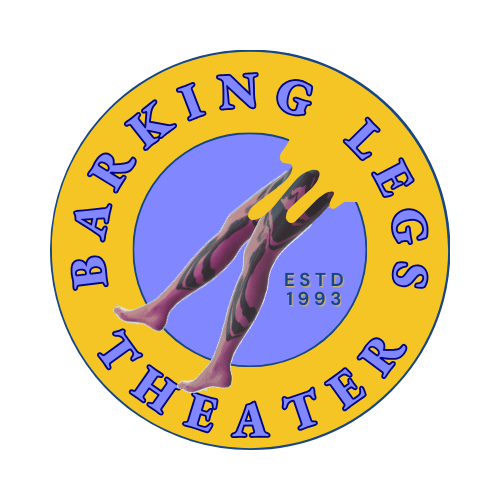Confessions of a Pentecostal Buddhist, Exploring Trauma and Reconciliation
Daniel Edward Moore's Confessions of a Pentecostal Buddhist will be at Barking Legs Theater Saturday, September 23. The show will incorporate his poetry collection of the same name and explore the trauma from his religious upbringing and how he has found peace through poetry and meditation. The Whidbey News-Times wrote an amazing article about his inspiration behind the collection. Read it here or below.
Local poet to represent Whidbey
Oak Harbor resident Daniel Moore will represent Whidbey Island as a featured poet in Washington State Poet Laureate Tod Marshall’s “WA 129” Washington state poetry anthology, which comes out April 13 in honor of National Poetry Month.Moore said he’s the sole “Whidbey Island guy” out of the 129 poets that Marshall selected from upwards of 2,000 submissions.His poem, “A Ghost Minority,” a poem that’s all about Coupeville, will appear in the publication.“It’s about the beauty and the shadow — the terror — of Coupeville’s history, with all the different things like the Ebey’s Landing beheading, (Robert) Pratt’s history and the killing of the baby whales at Penn Cove,” Moore said. “It’s a beautiful narrative, historical piece.”In just two years, Moore has seen more than 70 poems published and came out with a collection of 23 pre-published poems — a book for which he is still touring.“The ‘Confessions of a Pentecostal Buddhist’ book is really giving people an invitation that have some type of religious damage in their own personal history that they’ve been working through for some period of time,” Moore said.Moore has a National Poetry Month reading at 1 p.m. Saturday, April 29 at the Freeland Library, followed by a reading at 2 p.m. Sunday, May 21 at the Coupeville Library.For Moore, poetry is more than just words on a page. It’s transformative.“People have to have a desire to experience language as an act of change,” he said. “When somebody reads a poem, it hopefully gives them a deeper invitation to become themselves, permission to claim your own humanity.”Sharing the drive to discover one’s own flawed but powerful humanity is only the beginning, Moore said. Poetry should also bring communities together.“I don’t have any academic interest in having poetry just be its own art form without it being a cathartic element in people’s lives,” he said.To that end, Moore hopes to one day help foster a community of poets in Oak Harbor that would support each other in the craft.Moore’s all-consuming fire for poetry began with a spark from an unlikely source — the shelves of a garage sale.“About 25 years ago, I was living in Florida and I found a Sylvia Plath ‘Ariel’ book at a garage sale and I picked it up,” Moore said. “I had been journalling a lot more during the years before that, but I had never really read poetry.”He said reading the celebrated confessional poet’s work catalyzed his own journey with free-verse poetry.Moore’s work finds its roots in the confessional tradition, meaning it has an autobiographical element to it. Yet he cannot be nailed down as a poet of place, religion or spirituality, though all three inform his craft, he said.In addition, Moore is almost finished with a manuscript called “Suggestions the Light Considered,” which will be a broad collection, featuring themes that range from sexuality to elements from the social and political spheres.Outside of poetry, Moore is the lead sleep technologist for WhidbeyHealth Sleep Center.“The paradox here is I work in sleep to help people learn how to sleep, and I work as a poet to wake people up,” Moore said. “What I do in sleep is just my professional life; my vocation in the world is poetry.”
